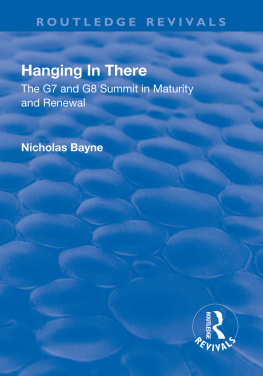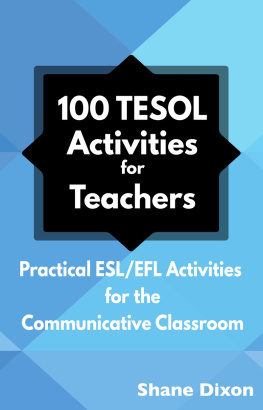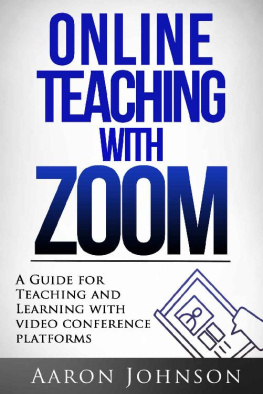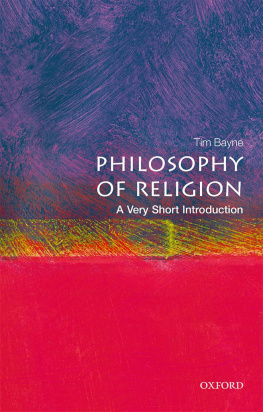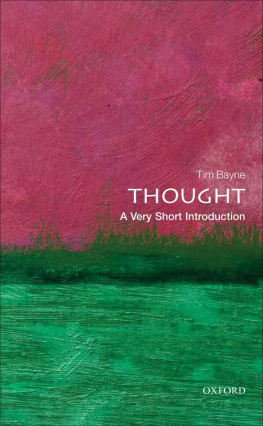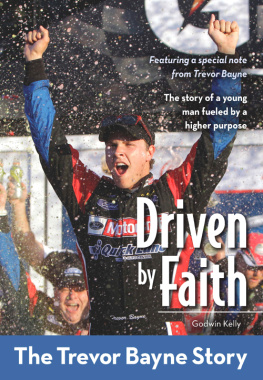Sian Bayne - The Manifesto for Teaching Online
Here you can read online Sian Bayne - The Manifesto for Teaching Online full text of the book (entire story) in english for free. Download pdf and epub, get meaning, cover and reviews about this ebook. year: 2020, publisher: MIT Press, genre: Romance novel. Description of the work, (preface) as well as reviews are available. Best literature library LitArk.com created for fans of good reading and offers a wide selection of genres:
Romance novel
Science fiction
Adventure
Detective
Science
History
Home and family
Prose
Art
Politics
Computer
Non-fiction
Religion
Business
Children
Humor
Choose a favorite category and find really read worthwhile books. Enjoy immersion in the world of imagination, feel the emotions of the characters or learn something new for yourself, make an fascinating discovery.

- Book:The Manifesto for Teaching Online
- Author:
- Publisher:MIT Press
- Genre:
- Year:2020
- Rating:4 / 5
- Favourites:Add to favourites
- Your mark:
- 80
- 1
- 2
- 3
- 4
- 5
The Manifesto for Teaching Online: summary, description and annotation
We offer to read an annotation, description, summary or preface (depends on what the author of the book "The Manifesto for Teaching Online" wrote himself). If you haven't found the necessary information about the book — write in the comments, we will try to find it.
The Manifesto for Teaching Online — read online for free the complete book (whole text) full work
Below is the text of the book, divided by pages. System saving the place of the last page read, allows you to conveniently read the book "The Manifesto for Teaching Online" online for free, without having to search again every time where you left off. Put a bookmark, and you can go to the page where you finished reading at any time.
Font size:
Interval:
Bookmark:
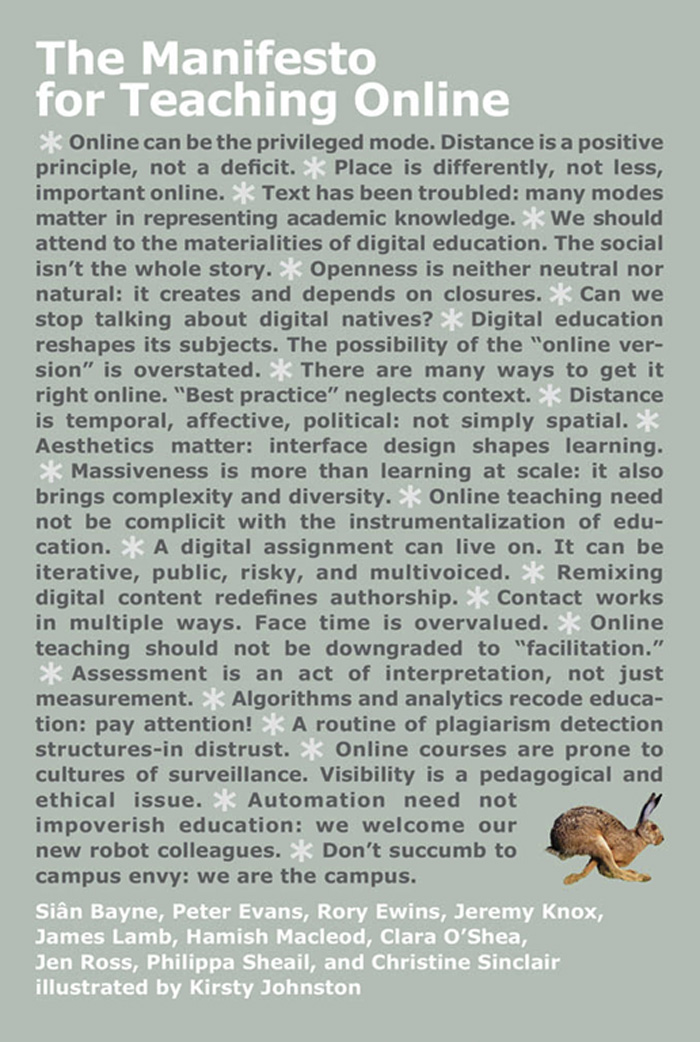
Sin Bayne, Peter Evans, Rory Ewins, Jeremy Knox, James Lamb, Hamish Macleod, Clara OShea, Jen Ross, Philippa Sheail, and Christine Sinclair
Illustrated by Kirsty Johnston
The MIT Press Cambridge, Massachusetts London, England
2020 Massachusetts Institute of Technology
All rights reserved. No part of this book may be reproduced in any form by any electronic or mechanical means (including photocopying, recording, or information storage and retrieval) without permission in writing from the publisher.
This book was set in ITC Stone and Avenir by New Best-set Typesetters Ltd.
Library of Congress Cataloging-in-Publication Data
Names: Bayne, Sin, author.
Title: The manifesto for teaching online / Sin Bayne, Peter Evans, Rory Ewins, Jeremy Knox, James Lamb, Hamish Macleod, Clara O'Shea, Jen Ross, Philippa Sheail, Christine Sinclair ; illustrated by Kirsty Johnston.
Description: Cambridge, Massachusetts : The MIT Press, 2020. | Includes bibliographical references and index.
Identifiers: LCCN 2020002988 | ISBN 9780262539838 (paperback)
Subjects: LCSH: Internet in higher education. | Web-based instruction. | Education, HigherComputer-assisted instruction.
Classification: LCC LB2395.7 .B39 2020 | DDC 378.1/7344678dc23
LC record available at https://lccn.loc.gov/2020002988
10 9 8 7 6 5 4 3 2 1
d_r0
This book is dedicated to all the students on the Edinburgh MSc in Digital Education past, present, and future: thank you for all your boldness, generosity, insight and trust.
Introduction
Conclusion: Valuing Complexity, Valuing the Teacher
Introduction
Conclusion: Beyond Words, Beyond the Author
Introduction
Conclusion: The Politics of Technical Disruptions
Introduction
Conclusion: Beyond the Deficit Model
Introduction
Conclusion: Strategies of Future Making
- Online can be the privileged mode. Distance is a positive principle, not a deficit.
- Place is differently, not less, important online.
- Text has been troubled: many modes matter in representing academic knowledge.
- We should attend to the materialities of digital education. The social isnt the whole story.
- Openness is neither neutral nor natural: it creates and depends on closures.
- Can we stop talking about digital natives?
- Digital education reshapes its subjects. The possibility of the online version is overstated.
- There are many ways to get it right online. Best practice neglects context.
- Distance is temporal, affective, political: not simply spatial.
- Aesthetics matter: interface design shapes learning.
- Massiveness is more than learning at scale: it also brings complexity and diversity.
- Online teaching need not be complicit with the instrumentalization of education.
- A digital assignment can live on. It can be iterative, public, risky, and multivoiced.
- Remixing digital content redefines authorship.
- Contact works in multiple ways. Face time is overvalued.
- Online teaching should not be downgraded to facilitation.
- Assessment is an act of interpretation, not just measurement.
- Algorithms and analytics recode education: pay attention!
- A routine of plagiarism detection structures-in distrust.
- Online courses are prone to cultures of surveillance. Visibility is a pedagogical and ethical issue.
- Automation need not impoverish education: we welcome our new robot colleagues.
- Dont succumb to campus envy: we are the campus.
[A manifesto makes] explicit (that is, manifest) a subtle but radical transformation in the definition of what it means to progress, that is, to process forward and meet new prospects. Not as a war cry for an avant-garde to move even further and faster ahead, but rather as a warning, a call to attention, so as to stop going further in the same way as before toward the future.
(Latour 2010, 473)
Teaching as a team is common in higher education, and perhaps works particularly well in programs strongly driven by the research of those doing the teaching. Students and teachers benefit from bringing multiple, entangled perspectives to the task of making sense of the world, where those perspectives are informed and energized by good research and scholarship. However, it is relatively rare for large teaching teams to come together to define and agree on a shared political and pedagogical stance on the act of teaching. Reaching such an agreement takes a lot of time, commitment, creativity, negotiation, and open dialogue among people who do not always entirely agree with each others stance and methods even though they share a mutual respect.

Figure 0.1
The Manifesto for Teaching Online emerged from this context of team teaching and negotiation. Its authors are all researchers at the Centre for Research in Digital Education at the University of Edinburgh, and we are all teachers on the fully online masters program in digital education, offered by the School of Education since 2006. We first published the manifesto in its original postcard form in 2011, then again in 2016, with a third iteration planned for 2021a five-year rhythm that seems likely to continue into the foreseeable future. Five years is a long time in all academic fields, but particularly those that navigate the continually shifting landscape of technological change. And while our values as teachers and researchers in digital education may not shift that much, the context in which we apply them changes substantially year by year.
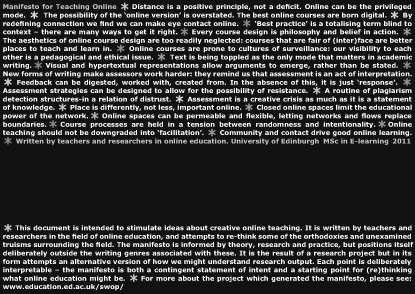
Figure 0.2 The 2011 manifesto
The manifesto emerged from a small research project, conducted between 2009 and 2011, that was funded to interrogate the online assessment and feedback methods we had developed in our program and to extend and share these with other educators. Over more than a year of intense discussion among the teaching team and work with the students who were appointed as research associates to the project, we found that we had done important work in formulating and articulating a shared teaching philosophy capable of driving such a project. Sharing this with others seemed to require a more experimental and engaged approach than the usual research papers and blog articles. A rough draft of the first Manifesto for Teaching Online was written and then refined over a series of discussions and events among a wider group of students and colleagues. By 2011 we had finalized the text and worked with a designer (Oliver Brookes) on the first print version. Over the course of 2015, an expanded team of teachers on our masters program (the authors of this book) revisited and reassembled the manifesto into its 2016 version, which Oliver Brookes then redesigned.
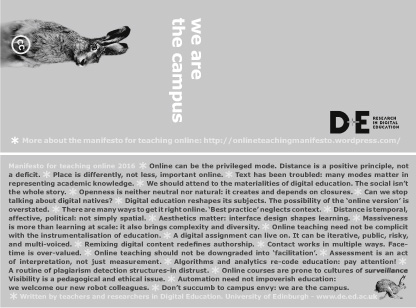
Figure 0.3 The 2016 manifesto
The aim of the manifesto was partly to develop our own teaching by articulating our shared values and their political and philosophical basis. Its theme was our practice, but it was also a way of describing and building on our research. Its critical goal was to push back on two linked areas we saw, and continue to see, as damaging: (1) the impoverished technocorporate futures for education being normalized by corporate and government ed-tech and (2) the orthodoxies framing traditional higher education teaching, which so often fail to properly account for digital methods.
Next pageFont size:
Interval:
Bookmark:
Similar books «The Manifesto for Teaching Online»
Look at similar books to The Manifesto for Teaching Online. We have selected literature similar in name and meaning in the hope of providing readers with more options to find new, interesting, not yet read works.
Discussion, reviews of the book The Manifesto for Teaching Online and just readers' own opinions. Leave your comments, write what you think about the work, its meaning or the main characters. Specify what exactly you liked and what you didn't like, and why you think so.

